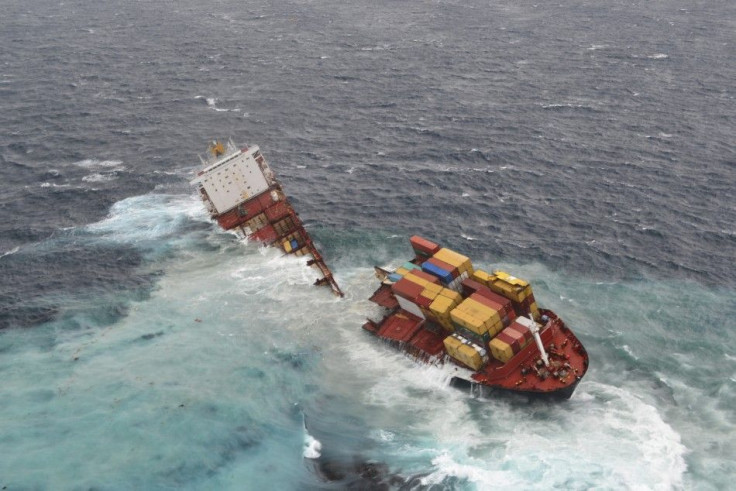New Zealand Oil Spill: Tourists Encouraged to Keep Visiting Bay of Plenty

Just as images of the New Zealand oil spill began fading into memory, news of the wrecked cargo ship Rena's split over the weekend reopened old wounds and posed new challenges for the island nation's beleaguered tourism department.
A survey in the weeks following the Rena grounding found more than half of the Bay of Plenty (BOP) region's tourism operators were suffering from the October spill.
Less than a month ago, the BOP unveiled a sweeping new tourism campaign in an attempt to erase images of oiled beaches and dead wildlife from the minds of prospective travelers. The campaign -- bearing the slogan It's not called the Bay of Plenty for Nothing -- was an attempt to restore the region's pristine, 100% Pure reputation.
However over the weekend, Rena split in two, sent about 150 cargo containers overboard, and coated the bay with a light sheen of oil.
The Liberia-flagged Rena spilled roughly 400 tons of fuel oil when it ran aground on Oct. 5 on the Astrolabe Reef, 14 miles from Tauranga Harbor on New Zealand's North Island. Considered the worst maritime environmental disaster in New Zealand history, the spill fouled popular tourist beaches and killed thousands of seabirds.
Crews had removed about 1,000 tons of oil from the ship along with over 400 20-foot and 40-foot containers before the ship split over the weekend. Debris currently washing ashore in the Bay of Plenty include powered milk, timber, plastics, and paper. Authorities expect more debris to wash up over the next week and oil spill response teams and wildlife experts are on call to respond.
Police temporarily closed public access to several popular beaches Monday morning and forced several marine-based tourism operators to cancel activities.
While authorities don't recommend swimming in the sea right now, we have every confidence this will only be a short-term measure and life will be back to normal in Bay of Plenty very shortly, Tourism Bay of Plenty chairman Paul Bowker told local newspaper Sun Live.
This is another blow to our region's reputation, but we can get through it, Bowker said. We went through worse when the Rena first grounded and we came out the other side very quickly.
There are so many great things to do here away from the beach, Bowker added, like adventure activities, great shopping, top restaurants and cafes, wineries and hiking, to name just a few.
While Bowker is optimistic, several marine operators like fishing and sailing charters, surf schools, and ocean kayak tours were forced to close for the immediate future.
Ian Smith owns two campgrounds at the debris-ridden Waihi Beach - the Waihi Beach Top 10 Holiday Resort and the Beachhaven Holiday Park.
It has been a bit tough, he told the Waikato Times. At one end we have had all the rain and the mud, and then on the other we get the Rena and closed beaches and water you can't swim in.
It's lucky we won the Rugby World Cup, he said. Because we can't seem to take a trick with anything else.
READ ALSO:
New Zealand Oil Spill Tainting Nation's 'Pure' Image for Tourists
© Copyright IBTimes 2024. All rights reserved.






















